Happy Tuesday! Stephen Nedoroscik has exactly one job on the U.S. men’s Olympic gymnastics team: be really, really good at swinging himself around a pommel horse.
Quick Hits: Today’s Top Stories
- President Joe Biden on Monday announced a series of proposals to reform the Supreme Court, including implementing an 18-year term limit for Supreme Court justices and an enforceable code of ethics. “Term limits would help ensure that the court’s membership changes with some regularity. That would make timing for court nominations more predictable and less arbitrary,” Biden wrote in an op-ed for the Washington Post. “I support a system in which the president would appoint a justice every two years to spend 18 years in active service on the Supreme Court.” He also called for a constitutional amendment that would effectively undo the high court’s ruling earlier this month on a president’s immunity for certain acts while in office. Several of the proposed changes are arguably unconstitutional, and House Speaker Mike Johnson declared the package “dead on arrival” in the Republican-controlled House.
- North Carolina Gov. Roy Cooper, a Democrat, has reportedly removed himself from consideration to be Vice President Kamala Harris’ running mate. “This just wasn’t the right time for North Carolina and for me to potentially be on a national ticket,” Cooper tweeted Monday. Govs. Josh Shapiro of Pennsylvania, Tim Walz of Minnesota, and Gretchen Whitmer of Michigan are reportedly still under consideration, as are Sen. Mark Kelly of Arizona and Secretary of Transportation Pete Buttigieg.
- Supporters of Venezuela’s political opposition took to the streets in protest on Monday after the country’s socialist government formally declared incumbent authoritarian President Nicolás Maduro the winner in Sunday’s presidential election. Anti-Maduro forces claimed victory for opposition candidate Edmundo González, alleging widespread voter fraud. In return, Maduro’s government accused opposition leaders—including disqualified presidential candidate María Corina Machado—of committing electoral sabotage meant to alter the results, though provided no proof and stopped short of issuing arrest warrants.
- U.S. Defense Secretary Lloyd Austin spoke with Israeli Defense Minister Yoav Gallant on Monday after Hezbollah—the Iranian-backed terrorist organization based in Lebanon—launched a rocket strike that killed 12 children in northern Israel on Saturday. Gallant discussed Israel’s need to “restore security” along its border with Lebanon, in addition to “exacting a heavy price from Hezbollah,” according to a statement from the Israeli minister’s office. Also on Monday, White House spokesperson John Kirby told reporters that the risk of large-scale war between Israel and Hezbollah has been “exaggerated” as Israeli leaders mull a response to Saturday’s attack.
- Israeli protesters—including a few right-wing members of parliament—on Monday stormed an Israel Defense Forces (IDF) military base, Sde Teiman, in the southern part of the country after initially gathering outside the base’s gates to protest an investigation from military officials into at least nine IDF soldiers suspected of physically abusing Palestinian detainees. Protesters also reportedly gathered at the Beit Lid installation in northern Israel, and several apparently broke into a military court before they were pushed out by police.
- Two children were killed—and nine others injured—in a stabbing attack on Monday at a dance class in the seaside town of Southport, England. Six of the wounded children remain in critical condition, as do two adults who were stabbed, likely while trying to protect the children. Law enforcement officials confirmed a 17-year-old suspect had been arrested, though a motive for the attack is not yet clear.
- The New York Times reported over the weekend that law enforcement counter-snipers first identified the gunman who attempted to assassinate former President Donald Trump more than 90 minutes before he opened fire at Trump’s campaign rally in Butler County, Pennsylvania on July 13. “Kid learning around building we are in,” read one text message in a group chat of local officers, which included pictures of the would-be assassin. “I did see him with a range finder looking towards stage. FYI. If you wanna notify [Secret Service] snipers to look out. I lost sight of him.” Meanwhile, Trump has agreed to a private interview with the FBI as it continues its investigation into the attempted assassination, the federal intelligence agency announced on Monday.
- In a skirmish confirmed by both sides on Monday, separatist fighters in Mali killed a number of Russian mercenaries from the Wagner Group who were fighting on behalf of the West African nation’s military junta. The exact number of Russian mercenary soldiers killed in action is contested, though it could be more than 20. A coalition of military rebel groups—the Permanent Strategic Framework for Peace, Security, and Development—said it targeted both Wagner and Mali army soldiers to capture the town of Tinzaouaten, located in the northeastern region of the country near Mali’s border with Algeria.
- Unknown individuals damaged six telecommunication installations throughout France between Sunday and Monday, marking the latest round of sabotage attacks against the nation’s infrastructure during the Paris Summer Olympics after coordinated arson attacks on three major railways leading into Paris early Friday morning. While authorities have not formally named culprits in the telecom attacks, police arrested a suspected far-left saboteur on Sunday who they believe was attempting to damage another train line. French Interior Minister Gérald Darmanin said on Monday he considers radical leftists as the most likely perpetrators of the rail attacks.
- Italian Prime Minister Giorgia Meloni signed a three-year agreement in Beijing on Sunday to “relaunch” relations between China and Italy. The “Memorandum of Industrial Cooperation” between the nations looks to boost Chinese investment in Italy’s automotive and renewable energy industries while heading off a trade war between the communist state and European Union members. Meloni’s move comes over seven months after she pulled Italy out of China’s Belt and Road Initiative (BRI)—one of Chinese leader Xi Jinping’s flagship foreign policy enterprises meant to increase the country’s international infrastructure and trade investments—over fears the BRI conflicted with her nation’s historic partnerships with Western countries.
Two Drug Kingpins Fall
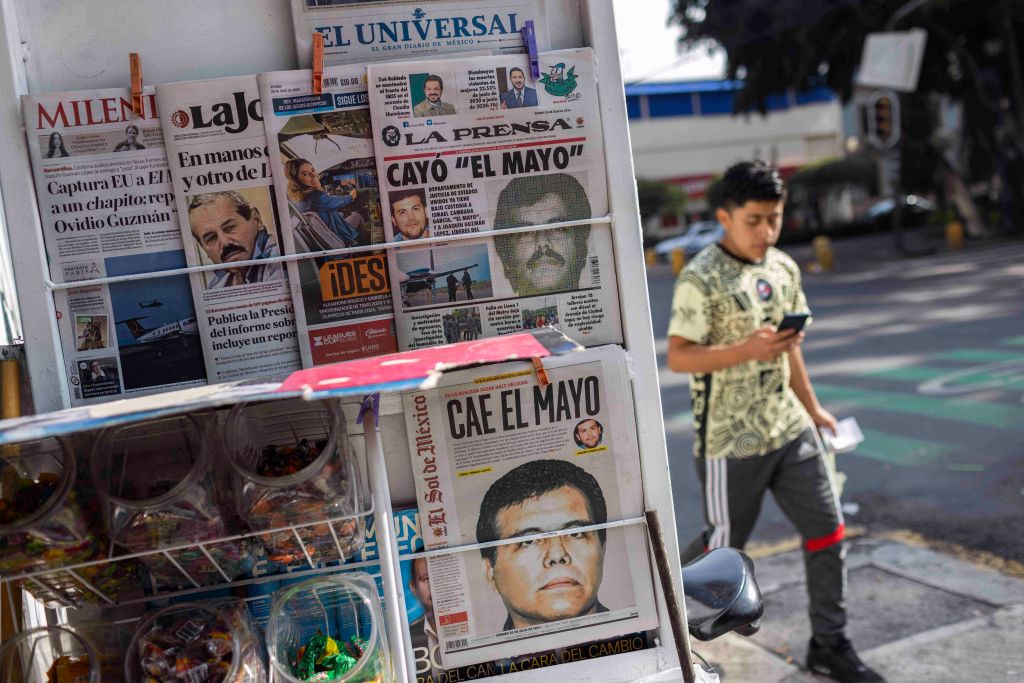
On Thursday evening, two key figures in the Sinaloa drug cartel boarded a small prop plane in Mexico. But only one of them knew where the plane was going.
The story, unsurprisingly, has the makings of a great TV miniseries. Joaquín Guzmán López, son of infamous drug kingpin Joaquín “El Chapo” Guzmán, knew that the plane was headed across the U.S.-Mexico border to land at a tiny airport in New Mexico, near El Paso, Texas. Guzmán—who is facing indictments in multiple U.S. jurisdictions and whose father and brother are doing time in U.S. federal supermax prisons—planned to turn himself in to U.S. authorities once the plane touched down.
But he wasn’t alone. Ismael “El Mayo” Zambada, who co-founded the cartel, had been in hiding for decades. But he boarded that plane on Thursday, for some reason, only to arrive right in the hands of U.S. law enforcement. He’ll now face trial on a plethora of charges for his yearslong drug trafficking operations.
The arrests were a huge victory for U.S. law enforcement in its battle against the powerful Sinaloa cartel, but a number of questions still remain about the circumstances that brought the two leaders to the U.S. Despite the high-profile bust, their capture is unlikely to pause operations in the diffuse organization responsible for a significant portion of drugs trafficked into the U.S., including deadly fentanyl.
“This is an incredible win in the fight against cartels,” said Elizabeth Neumann, a former assistant secretary for counterterrorism and threat prevention at the Department of Homeland Security during the Trump administration. “It’s not a perfect parallel, but in the counterterrorism fight, it would be like getting Bin Laden.”
These Bin Laden-like figures are key leaders in the Sinaloa cartel, one of the largest and most violent drug trafficking operations in the world. Zambada founded the group alongside El Chapo in the 1980s, and the dispersed network now produces, sells, and transports all manner of drugs, including methamphetamine, cocaine, heroin, and synthetic fentanyl. By the early 2010s, the group controlled, by some estimates, between 40 and 60 percent of Mexico’s drug trafficking and was potentially raking in somewhere in the neighborhood of $3 billion every year as it dominated the illicit drug trade in the U.S.
Fentanyl is a relative newcomer to the illicit drug trade, but it’s a cash cow for the Sinaloa cartel. The synthetic opioid is cheap and relatively easy for cartels to produce in a lab, especially compared to the labor-intensive process of growing poppies or coca and processing it into heroin or cocaine. The drug—which also has legitimate uses as a pain reliever in certain medical settings—is 50 times more potent than heroin, meaning drug traffickers can cut other, more expensive products with fentanyl to expand their profits. Cartels also often use illegal pill presses to make the drug appear like less-powerful prescription opioids.
Fentanyl’s high potency means that even a tiny dose can be fatal, and the ubiquitous drug is behind a dire overdose crisis in the U.S. In 2023, an estimated 74,700 people died in the U.S. from synthetic opioid overdoses, primarily caused by fentanyl. That was down slightly from the 2022 figure, which saw more than 76,000 people die from fentanyl overdoses in the U.S. The Centers for Disease Control and Prevention says synthetic opioids, including fentanyl, contribute to 70 percent of all U.S. overdose deaths.
Attorney General Merrick Garland last week heralded the arrest of the two cartel leaders as a win in the fight against the drug. The DOJ had charged Zambada with fentanyl trafficking in February—though he’s also wanted on a slew of other drug trafficking charges, plus at least one charge of conspiracy to commit murder. He pleaded not guilty to drug charges last week in El Paso.
But the circumstances that saw the elusive kingpin arrive in the courtroom on Friday are still murky, at best. Guzmán López, El Chapo’s son and the financial mind behind the cartel, had reportedly been in discussions with U.S. law enforcement to turn himself in, perhaps feeling encircled. His father, El Chapo, who escaped prison twice in the early 2000s, is now doing life in a supermax in Colorado after he was convicted in 2019.
Another of El Chapo’s sons—Ovidio, the mastermind of the Sinaloa fentanyl trade—was arrested during a dramatic raid at his compound in Mexico in early 2023. Online records from the Federal Bureau of Prisons seemed to indicate, however, that Ovidio had been released from federal custody on July 23, two days before his brother turned himself in. When asked by TMD if he was still in federal custody, why the website showed he had been released, and whether he was involved at all in his brother’s arrest, a spokesman for the DOJ answered only that “Ovidio Guzmán López remains in federal custody.”
Juaquin Guzmán López—who has a $5 million bounty on his head from the U.S. government—could have seen the writing on the wall. “He’s essentially seen how the story goes,” said Ana Quintana-Lovett, a former adviser on counternarcotics to House Foreign Affairs Committee Chair Mike McCaul. “Nobody gets out of this in a place where you can actually enjoy your money and the rest of your life in a way that’s up to your choosing. Everybody in the Sinaloa cartel-El Chapo orbit—it seems like a lot of people are cooperating [with law enforcement].”
It’s unclear whether Guzmán López accepted some kind of deal for a lesser sentence or whether his brother was involved at all in his decision to turn himself in. But U.S. investigators were reportedly skeptical he’d follow through until Thursday, when he was suddenly on a plane bound for the U.S. with Zambada—so sudden that agents with the FBI or Homeland Security Investigations (HSI) barely had time to beat the plane to the U.S. airfield.
Initial reporting from multiple outlets indicated that El Chapo’s son had duped Zambada—who rarely leaves his mountain hideout and has never been arrested before—into getting on the plane to survey some property in northern Mexico. Zambada’s lawyer, however, claimed Zambada had been kidnapped, and that Guzmán López forced him onto the plane against his will.
Though at first blush, the account seemed fanciful—the work of a drug lord’s lawyer trying to muddy the waters of a major arrest—the New York Times reported late Tuesday that U.S. officials now say the abduction story may be closer to the truth than the original claims from anonymous officials that Zambada was simply tricked onto the plane.
The Times reported that several anonymous U.S. officials say Zambada arrived from his hideout at what he believed would be an amicable meeting with Guzmán López in Culiacán, the capital of the Sinaloa state. Instead, they said, he was met with a violent ambush by Guzmán López’s bodyguards. U.S. officials clarified they had no knowledge of how Zambada may have come to be on the plane when he arrived, and whether he went to the States willingly may not make any legal difference for his prosecution here.
The Mexican government likewise said it had no involvement with either arrest on Thursday—though if it turns out to be true that Zambada was functionally kidnapped, the Mexican government may step in to demand his return, as it did with the kosher, if embarrassing, 2020 arrest of the corrupt former Mexican Defense Minister Salvador Cienfuegos.
Among the open questions remaining about last week’s bizarre turn of events is how much they’ll ultimately matter to the operation of the Sinaloa cartel. “You ‘decapitate’ an organization like Sinaloa, and somebody else is going to pop up into these leadership positions,” Doug Fears, a homeland security and counterterrorism adviser to former President Donald Trump, told TMD. “And so there’s a never-ending stream of people within the organization that can rise into the position that’s vacated by somebody that’s been interdicted, arrested, extradited, etc. And so a lot of people find that unsatisfying.”
The arrests could temporarily disrupt the cartel’s functioning as it faces potential infighting over who might rise to replace the arrested leaders or if members are acting more carefully for fear they’ve been betrayed by someone like Guzmán López feeding information to law enforcement. But operations will likely recover. “I would argue that as long as our U.S. endgame is reinforcement of the rule of law and bringing somebody to justice, then this is how we’ve defined success,” Fears said. “Even if it seems unsatisfying that a criminal organization as big as Sinaloa continues to exist.”
Worth Your Time
- In a piece for The Atlantic, McKay Coppins analyzed 58 instances of what he claims is the most “revealing moment” in any Trump rally: the opening prayer. “The prayers offered before Trump speaks illuminate this perilous moment in American politics just as well as anything he says from the podium,” he wrote. “And they help explain how the stakes of this year’s election have come to feel so apocalyptically high. … Trump’s supporters attribute America’s fall from grace to a variety of national sins old and new—prayer bans in public schools, illegal immigration, pro-transgender policies, the purported rigging of a certain recent election. Whatever the specifics, the picture of America they paint is almost universally—biblically—bleak. … The premise of all of these prayers is that America’s covenant can be reestablished, and its special place in God’s kingdom restored, if the nation repents and turns back to him. …What’s new is how many Christians now seem convinced that God has anointed a specific leader who, like those prophets of old, is prepared to defeat the forces of evil and redeem the country. And that leader is running for president.”
- Washington needs to keep putting pressure on Venezuelan dictator Nicolás Maduro, argued Jose Ignacio Hernández, the erstwhile special attorney general of the country under former interim president Juan Guaidó. “For the past decade, Washington and its partners have applied both sticks, such as sanctions, and carrots, such as sanctions relief, to nudge the Maduro regime in the direction of competitive elections,” he wrote in Foreign Affairs. “In the absence of this sustained effort over successive U.S. administrations, the Venezuelan opposition may well have boycotted the 2024 election entirely, as it has in the past. Even though Maduro has not conceded defeat, a relatively competitive election has brought Maduro’s unpopularity into sharp relief. The widespread public antipathy toward the regime—and the groundswell of support for the opposition—is now transparent to all. Going forward, Washington must seize the momentum and dial up the pressure.”
Presented Without Comment
Axios: Biden Left Congress in Dark on Supreme Court Reforms
The White House didn’t consult Senate Judiciary Committee Chair Dick Durbin and other key congressional Democrats on President Biden’s proposals to dramatically overhaul the Supreme Court, Axios has learned.
The lack of coordination with Capitol Hill signals that Biden’s SCOTUS proposals amount to more of a pre-election messaging push than a legislative imperative.
Also Presented Without Comment
Rep. Lloyd Doggett of Texas, the first Democratic member of Congress to call for President Joe Biden to withdraw from the presidential race, thanked the president on Monday for his decision to step aside.
According to Doggett, Biden responded: “Thank you for suggesting it.”
In the (Olympic) Zeitgeist
It won’t come as a surprise to anyone that this is a patriotic newsletter ( 🇺🇸 🇺🇸 🇺🇸), and what better opportunity to brag on this great country than the Olympics, where athletes from the great U.S. of A absolutely dominate. So, for the next few days, expect to see a medal tracker here, where we keep you updated on where the U.S. sits in the overall medal standings and how other countries are stacking up.

Toeing the Company Line
- In the newsletters: Kevin considered why (🔒) politicians are defined not by their policy proposals but by their brand, the Dispatch Politics team compared Trump’s current performance in the polls to this time in the 2016 and 2020 presidential races, and Nick dove into (🔒) Team Trump laying the groundwork to scapegoat J.D. Vance.
- On the podcasts: Sarah and David are joined on Advisory Opinions by Anthony Sanders, director of the Center for Judicial Engagement at the Institute for Justice, to pan Justice Oliver Wendell Holmes Jr. Sarah also kicked off a new season of The Dispatch Book Club (🔒), discussing The Daughters of Yalta with author Catherine Grace Katz.
- On the site: Chris explores the growing gender gap for voters between 18 and 29, Jonathan Schanzer and David Daoud weigh the threat of full-scale war between Hezbollah and Israel, Adam White explains why he thinks Biden’s court reform plan is a horrible idea, and Leah unpacks California Gov. Gavin Newsom’s new executive order on homeless encampments.
Let Us Know
Do you think picking off the cartel’s leaders is an effective tactic to bring the group down?



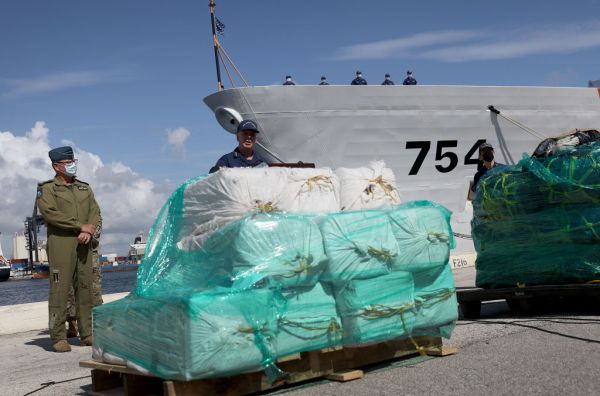
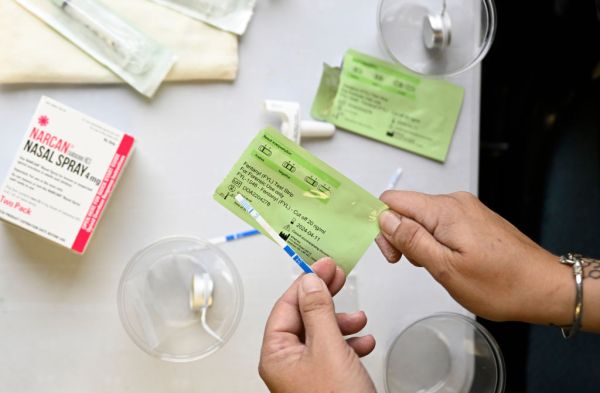
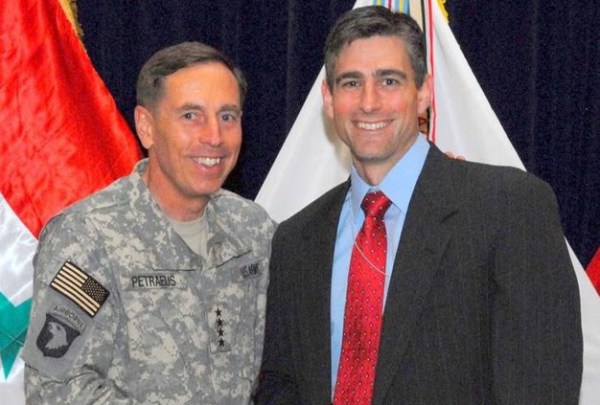

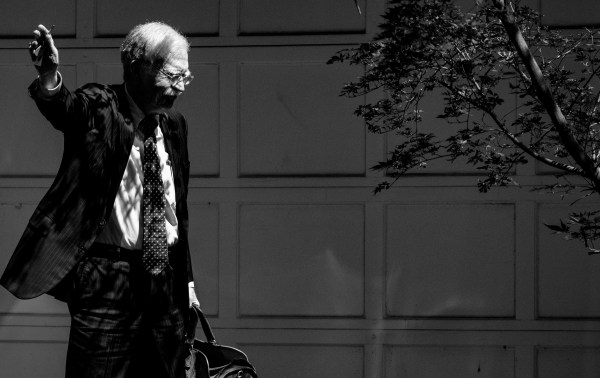



Please note that we at The Dispatch hold ourselves, our work, and our commenters to a higher standard than other places on the internet. We welcome comments that foster genuine debate or discussion—including comments critical of us or our work—but responses that include ad hominem attacks on fellow Dispatch members or are intended to stoke fear and anger may be moderated.
With your membership, you only have the ability to comment on The Morning Dispatch articles. Consider upgrading to join the conversation everywhere.